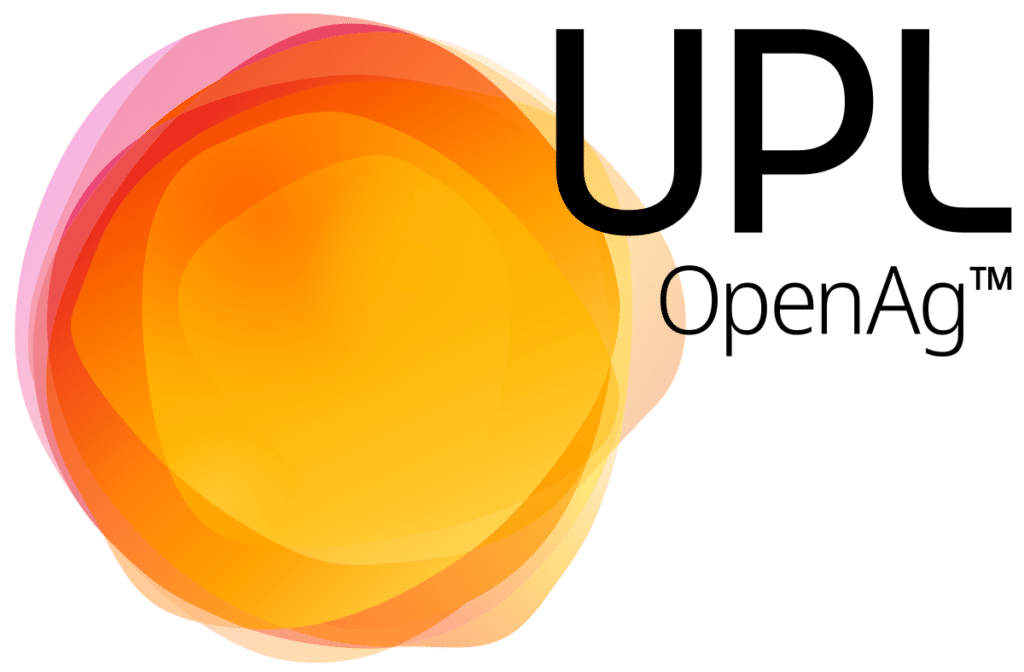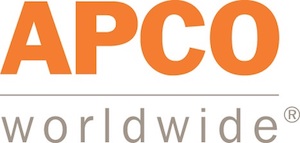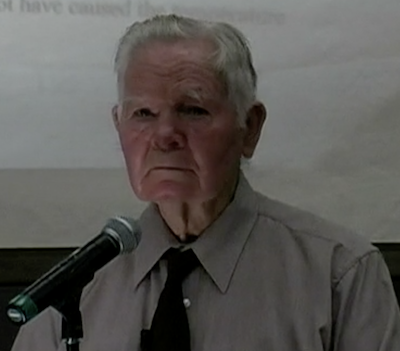Background
UPL, formerly United Phosphorus Limited, is a global provider of agricultural products and technology. The company produces agrochemicals including herbicides, insecticides, fungicides and fertilizers,1“Crop Protection,” UPL. Archived December 1, 2021. Archive URL: https://archive.fo/mY2Q0 as well as “disease-resistant and high-yielding seed varieties with valuable traits.”2“Seeds for Vegetables and Crops,” UPL. Archived October 3, 2021. Archive URL: https://archive.ph/9rUI1
Headquartered in India, UPL’s annual revenue exceeds $5 billion USD.3“UPL Ltd. Launches New ‘NPP’ Business Unit to Enhance Biosolutions Capacity for Sustainable Agriculture Offering Worldwide,” BusinessWire, June 28, 2021. Archived 25 November 2021 Archive URL: https://archive.ph/hlyNp According to its website, UPL has a sales presence in over 138 countries.4“UPL,” UPL. Archive November 24, 2021. Archive URL: https://archive.ph/nBwRz
UPL’s European branch, UPL Europe Ltd., is headquartered in the United Kingdom.
In 2019, UPL acquired Arysta Lifescience, another provider of crop protection products, making UPL the fifth-largest company in the agricultural solutions market after Bayer, BASF, Syngenta and DuPont.5“UPL completes the acquisition of Arysta LifeScience, launches its new purpose Open Agriculture (‘OpenAg’)” UPL, February 14, 2020. Archived November 25 2021, Archive URL: https://archive.ph/wip/IAbzw
Stance on Climate Change
UPL CEO Jai Shroff has said that the company will address the challenges climate change presents to its business by investing in agricultural technology.6UPL CEO Jai Shroff Highlights Tech in Sustainable Agriculture Amid Growing Climate Change Threats,” Asia Society, August 13, 2021. Archived 25 November 2021. Archive URL: https://archive.ph/ijDym
In 2019, UPL launched Open Agriculture (“OpenAg”), an initiative to “transform agriculture by creating an open agriculture network that feeds sustainable growth for all,” according to Shroff. UPL also claims to support the “true heroes of our story, the 500 million farmers who will face the challenge” of feeding the world’s population.7“UPL completes the acquisition of Arysta LifeScience, launches its new purpose Open Agriculture (‘OpenAg’)” UPL, February 14, 2020. Archived November 25 2021. Archive URL: https://archive.ph/wip/IAbzw
Upon acquiring Arysta and launching OpenAg, CEO Jai Shroff said, “Farmers need technologies that help them to be more resilient and that enhance performance in light of climate change.”8”Arysta: Creating a global leader in agricultural solutions – July 2018,” UPL, July 2018. Archived November 27, 2021. Archived .pdf on file at DeSmog.
In May 2021, UPL signed a multi-year agreement with the non-profit Soil Health Institute (SHI), during which the SHI will “evaluate the soil health at selected UPL research and development field stations around the world.”9“Soil Health Institute press release,” UPL, May 4, 2021. Archived November 30, 2021. Archived .pdf on file at DeSmog. The Soil Health Institute’s partners include major U.S. food and agribusiness companies such as General Mills and Cargill.10“Partners,” Soil Health Institute, Archived November, 25 2021. Archive URL: https://archive.ph/OKReo
On October 4, 2021, UPL joined “The Climate Pledge,” an initiative promoted by multinational technology company Amazon to become a net-zero company by 2040, 10 years ahead of the target in the Paris Agreement.11”Co-Founding The Climate Pledge,” Amazon. Archived November 25 2021. Archive URL: https://archive.ph/wip/x2vAc Shroff has stated that joining the initiative emphasizes UPL’s commitment to “reimagine sustainability, and transform the role of agriculture as a positive contributor to meeting the challenges presented by climate change.”12“UPL LTD joins the climate pledge, furthering a commitment to reshape the role of global agriculture in the fight against climate change,” UPL, October 4, 2021. Archived .pdf on file at DeSmog.
On October 21, 2021, UPL Europe announced in a sponsored post on European media platform EURACTIV that it had established a new “Natural Plant Protection unit” in Spain, which the company claimed will advance the objectives of the Paris Agreement to reduce CO2 emissions from agricultural crops.13“UPL presents the launch of its new business unit NPP in Europe,” EURACTIV, October 21, 2021. Archived November 25, 2021. Archive URL: https://archive.ph/wip/hsDJD However, the announcement followed the news that the biosolutions market is set to grow by $10 billion by the year 2025, compared to traditional agrochemicals, which are projected to experience single digit growth.14“UPL launches new natural plant protection business unit,” AgriTimes, June 28, 2021. Archived November 25, 2021. Archive URL: https://archive.ph/8daq1
According to a webpage titled “UPL 2020: 30% Environmental Footprint Reduction,” UPL had committed to a “sustainable development plan” that included reducing the environmental footprint of its manufacturing plants by 30 percent by 2020.15“Special Feature UPL,” UPL. Archived 25 November 2021. Archive URL: https://archive.ph/wip/Avr3J
In the plan, UPL stated that “Human activities are responsible for almost all of the increase in greenhouse gases in the atmosphere,” and claimed to have set itself a “bold emissions reduction target.” UPL did not specify the amount of that target, but claimed that the firm will reduce emissions through commitments including: “promot[ing] the use of renewable energy sources,” “reduc[ing] greenhouse gases during operation,” “use of eco-friendly fuels in the utility system” and “using alternating [sic] transport like rail or ship for transportation of products and goods.”16“Special Feature UPL,” UPL. Archived 25 November 2021. Archive URL: https://archive.ph/wip/Avr3J
Mancozeb Task Force
UPL has lobbied for the continued production and use of mancozeb, an agricultural fungicide specifically used on wheat, grapevines, flower bulbs, potatoes and tomatoes.17“Fungicide,” Wikipedia. Archived November 25, 2021. Archived URL: https://archive.ph/z7Kaz
In January 2015, in a “joint activity” with the Dutch company Indofil Industries, UPL Europe Ltd. funded the European Mancozeb Task Force to lobby for the continued production and use of mancozeb, an agricultural fungicide specifically used on wheat, grapevines, flower bulbs, potatoes and tomatoes. The European Mancozeb Task Force was registered with the EU Transparency Register.18“Soon EU decision on ban on the use of agricultural poison Mancozeb,” Iede News, March, 21 2020. Archived November 25, 2021. Archive URL: https://archive.ph/wip/AorEZ. Archived .pdf on file at DeSmog. 19“European Mancozeb Task Force,” European Transparency Register. Archived November 25, 2021. Archive URL: https://archive.ph/qgc4y
In 2015, UPL collaborated with the British consulting company ADAS to look into the socio-economic impact that the loss of mancozeb for potato production would have in eight European countries. According to their findings, an EU Mancozeb ban would create an “additional cost for producers who have to use more expensive alternatives.”20“Mancozeb: Its Value to the EU Potato Industry,” Journal of Food Science and Engineering, 2017. Archived .pdf on file at DeSmog.
UPL uses mancozeb as an ingredient in at least six of its products.21“Find Your Product,” UPL. Archived November 27, 2021. Archive URL: https://archive.ph/LF778 According to Pesticides Action Network Europe, mancozeb has been identified as an endocrine disruptor, a substance which can harm human and animal health by altering the function of the body’s endocrine system, which regulates hormones.22“FACTSHEET Mancozeb,” Pesticides Action Network Europe, March 2020. Archived September 21, 2020. Archived .pdf on file at DeSmog. 23“What are endocrine disruptors – Environment,” European Commission, Archived on 25 November 2021, Archive URL: https://archive.ph/wip/brRND
Exposure to endocrine-disrupting chemicals (EDCs) is also regarded as one of the most serious human-made threats to biodiversity and the world’s ecosystems.24“Endocrine-Disrupting Chemicals and Climate Change: A Worst-Case Combination for Arctic Marine Mammals and Seabirds?,” National Center for Biotechnology, October 21, 2005. Archived November 25, 2021. Archived .pdf on file at DeSmog.
Because hormones help animals respond to environmental stressors, EDCs may interfere with animals’ ability to adapt to challenges in their environment – including those caused by climate change. Studies show that a combination of increased temperature and endocrine-disrupting pollutants can affect animals’ reproductive function and cause infertility in male mammals, which can contribute to biodiversity loss.25“A systematic review of Mancozeb as a reproductive and developmental hazard,” Environment International, November 26, 2016. Archived November 25, 2021. Archive URL: https://archive.ph/wip/mI8br
In 2015, UPL told the publication Farmers Guardian that “mancozeb is an endocrine disrupter less likely to pose a risk or of low regulatory concern.”26“Mancozeb – an endocrine disruptor less likely to pose risk?,” Farmers Guardian, April 13, 2015. Archive URL: https://archive.ph/wip/WCPq0. Archived .pdf on file at DeSmog.
In the European Commission’s 2016 public consultation, “Criteria to identify endocrine disruptors for plant protection products,” the Mancozeb task force stated that mancozeb “does not have an adverse effect relevant for human or environmental health and therefore it is not an endocrine disruptor.” According to the task force, a mancozeb ban would cause large decreases in crop yields and increased problems with pest resistance, while providing no benefit to human health.27“Feedback from: EU Mancozeb Task Force,” European Commission, July, 27 2016. Archived on 25 November 2021, Archived URL: https://archive.ph/wip/nnLIu
In 2019, the European Food Safety Authority (EFSA) produced an opinion determining that mancozeb is an EDC that poses high risks to birds, mammals and insects.28“FACTSHEET Mancozeb,” Pesticides Action Network Europe, Archived .pdf on file at DeSmog. 29“Peer review of the pesticide risk assessment of the active substance mancozeb [full version],” EFSA, December 16, 2020. Archived December 1, 2021. Archived .pdf on file at DeSmog. In the same year, the European Parliament’s resolution regarding extension of the approval periods of mancozeb and other active substances acknowledged that mancozeb affects aquatic life, slowing tissue development and causing reproductive harms to common fish species.30“Texts adopted – Active substances, including dimoxystrobin and mancozeb,“ European Commission, December 18, 2021. Archived November 25, 2021. Archive URL: https://archive.ph/wip/GJmAA 31“Determination of mancozeb toxicity and biochemical effects in common carp (Cyprinus carpio),” International Journal of Aquatic Biology, 2018. Archived November 25, 2021. Archive URL: https://archive.ph/wip/JRlCF 32Milena TZANOVA, Vasil ATANASOV, Botjo ZAHARINOV, Georgi BEEV, Toncho DINEV and Elica VALKOVA. “Reproduction impact of mancozeb on rainbow trout (Oncorhynchus mykiss W.) and accumulation of its carcinogen metabolite, ethylene thiourea in fish products,” Journal of Central European Agriculture, 2017. Archived December 8, 2021. Archived .pdf on file at DeSmog.
In a 2020 interview with Dutch magazine Trouw, Jeroen Voorbraak, director of UPL Breda, stated that, “The discussion is mainly emotional and not based on science. If this substance is banned, farmers will use other substances that may be more harmful.”33“Brussel wil gevaarlijk landbouwgif verbieden; onzin, zegt de fabrikant,” Trouw, March 13, 2020. Archive URL: https://archive.ph/wip/80eh3 Archived .pdf on file at De Smog.
In October 2020, EU Member States voted not to renew the license for use of mancozeb, with the ban going into effect in February, 2021.34“Harmful fungicide mancozeb to be banned in the EU,” ChemTrust, 13 November 2020. Archived November 26, 2021. Archive URL: https://archive.fo/lbyfE
Through its Farm to Fork Strategy, the European Union is also trying to ban the import of food farmed with pesticides, or that exceed the maximum allowed residue levels of some active substances, including mancozeb.35Eddy Wax and Emma Anderson. “The transatlantic relationship descends into a food fight,” Politico, September 29 2021. Archived December 1, 2021. Archive URL: https://archive.fo/ady2F
In October 2021, UPL Europe worked in partnership with European agrochemical businesses by participating in a pilot group to develop technologies said to facilitate agrochemical use and reduce farmers’ environmental exposure to plant protection products.36“UPL Europe se joint aux principaux acteurs de la protection des cultures pour apporter son appui au système de transfert fermé easyconnect – Agricultural Solutions,” BASF, 20 October 2021, Archived 25 November 2021. Archive URL:https://archive.ph/wip/A48Jl Participating companies included ADAMA, BASF, Bayer, Corteva Agriscience, FMC, Nufarm, Rovensa Group and Syngenta. The first market launch of technologies developed by the group is scheduled for Denmark and the Netherlands in 2022, followed by France, Germany and the UK in 2023.
Lobbying
According to the EU Transparency Register, ULP Ltd. Belgium spent between €50,000 – €99,999 on lobbying in 2019. Through the European Mancozeb Task Force, together with Indofil Industries, it spent between €50,000 – €99,999 in 2020.37“UPL,” European Transparency Register, , February 2, 2021, Archived 25 November 2021, Archive URL: https://archive.ph/wip/uSl3w 38“European Mancozeb Task Force,” European Transparency Register. Archived 25 November 2021. Archive URL:https://archive.ph/wip/qgc4y
UPL is also a client of lobby consultancies registered within the European Union. In 2019, UPL spent between €100,00 – €199,000 on the services of EU Focus,39“EU Focus,” European Transparency Register. Archived November 26, 2021. Archive URL: https://archive.ph/wip/vaM3F and between €100,000 – €199,999 on the services of EPPA S.A. 40“EPPA SA,” European Transparency Register. Archived November 25, 2021. Archive URL: https://archive.ph/wip/FBpaB
Affiliations
UPL Europe Ltd is a member of the European Crop Care Association (ECCA), a Brussels-based association of small- and medium-sized European manufacturers of “plant protection products,” including pesticides and herbicides, fungicides and growth regulators.41“Members,” European Crop Care Association. Archived April 10, 2021. Archive URL: https://archive.ph/Ombhf
UPL is also a member of CropLife Europe, alongside Adama, BASF, Bayer, Corteva, FMC and Syngenta.42“Our network,” CropLife Europe. Archived November 12, 2021. Archive URL: https://archive.ph/SvZU3
UPL is part of the Animal and Plant Health Association, a representative body for manufacturers and distributors of animal health and plant health products in Ireland. Its members include Bayer, BASF, Monsanto, Barclay Chemicals, Corteva, Adama, Syngenta and Nufarm. APHA is also a member of CropLife Europe.43“APHA Home Page,” Animal and Plant Health Association. Archived November 25, 2021. Archive URL: https://archive.ph/wip/QAz57
Resources
- 1
- 2“Seeds for Vegetables and Crops,” UPL. Archived October 3, 2021. Archive URL: https://archive.ph/9rUI1
- 3“UPL Ltd. Launches New ‘NPP’ Business Unit to Enhance Biosolutions Capacity for Sustainable Agriculture Offering Worldwide,” BusinessWire, June 28, 2021. Archived 25 November 2021 Archive URL: https://archive.ph/hlyNp
- 4
- 5“UPL completes the acquisition of Arysta LifeScience, launches its new purpose Open Agriculture (‘OpenAg’)” UPL, February 14, 2020. Archived November 25 2021, Archive URL: https://archive.ph/wip/IAbzw
- 6UPL CEO Jai Shroff Highlights Tech in Sustainable Agriculture Amid Growing Climate Change Threats,” Asia Society, August 13, 2021. Archived 25 November 2021. Archive URL: https://archive.ph/ijDym
- 7“UPL completes the acquisition of Arysta LifeScience, launches its new purpose Open Agriculture (‘OpenAg’)” UPL, February 14, 2020. Archived November 25 2021. Archive URL: https://archive.ph/wip/IAbzw
- 8”Arysta: Creating a global leader in agricultural solutions – July 2018,” UPL, July 2018. Archived November 27, 2021. Archived .pdf on file at DeSmog.
- 9“Soil Health Institute press release,” UPL, May 4, 2021. Archived November 30, 2021. Archived .pdf on file at DeSmog.
- 10“Partners,” Soil Health Institute, Archived November, 25 2021. Archive URL: https://archive.ph/OKReo
- 11”Co-Founding The Climate Pledge,” Amazon. Archived November 25 2021. Archive URL: https://archive.ph/wip/x2vAc
- 12“UPL LTD joins the climate pledge, furthering a commitment to reshape the role of global agriculture in the fight against climate change,” UPL, October 4, 2021. Archived .pdf on file at DeSmog.
- 13“UPL presents the launch of its new business unit NPP in Europe,” EURACTIV, October 21, 2021. Archived November 25, 2021. Archive URL: https://archive.ph/wip/hsDJD
- 14“UPL launches new natural plant protection business unit,” AgriTimes, June 28, 2021. Archived November 25, 2021. Archive URL: https://archive.ph/8daq1
- 15
- 16
- 17
- 18“Soon EU decision on ban on the use of agricultural poison Mancozeb,” Iede News, March, 21 2020. Archived November 25, 2021. Archive URL: https://archive.ph/wip/AorEZ. Archived .pdf on file at DeSmog.
- 19“European Mancozeb Task Force,” European Transparency Register. Archived November 25, 2021. Archive URL: https://archive.ph/qgc4y
- 20“Mancozeb: Its Value to the EU Potato Industry,” Journal of Food Science and Engineering, 2017. Archived .pdf on file at DeSmog.
- 21
- 22“FACTSHEET Mancozeb,” Pesticides Action Network Europe, March 2020. Archived September 21, 2020. Archived .pdf on file at DeSmog.
- 23“What are endocrine disruptors – Environment,” European Commission, Archived on 25 November 2021, Archive URL: https://archive.ph/wip/brRND
- 24“Endocrine-Disrupting Chemicals and Climate Change: A Worst-Case Combination for Arctic Marine Mammals and Seabirds?,” National Center for Biotechnology, October 21, 2005. Archived November 25, 2021. Archived .pdf on file at DeSmog.
- 25“A systematic review of Mancozeb as a reproductive and developmental hazard,” Environment International, November 26, 2016. Archived November 25, 2021. Archive URL: https://archive.ph/wip/mI8br
- 26“Mancozeb – an endocrine disruptor less likely to pose risk?,” Farmers Guardian, April 13, 2015. Archive URL: https://archive.ph/wip/WCPq0. Archived .pdf on file at DeSmog.
- 27“Feedback from: EU Mancozeb Task Force,” European Commission, July, 27 2016. Archived on 25 November 2021, Archived URL: https://archive.ph/wip/nnLIu
- 28“FACTSHEET Mancozeb,” Pesticides Action Network Europe, Archived .pdf on file at DeSmog.
- 29“Peer review of the pesticide risk assessment of the active substance mancozeb [full version],” EFSA, December 16, 2020. Archived December 1, 2021. Archived .pdf on file at DeSmog.
- 30“Texts adopted – Active substances, including dimoxystrobin and mancozeb,“ European Commission, December 18, 2021. Archived November 25, 2021. Archive URL: https://archive.ph/wip/GJmAA
- 31“Determination of mancozeb toxicity and biochemical effects in common carp (Cyprinus carpio),” International Journal of Aquatic Biology, 2018. Archived November 25, 2021. Archive URL: https://archive.ph/wip/JRlCF
- 32Milena TZANOVA, Vasil ATANASOV, Botjo ZAHARINOV, Georgi BEEV, Toncho DINEV and Elica VALKOVA. “Reproduction impact of mancozeb on rainbow trout (Oncorhynchus mykiss W.) and accumulation of its carcinogen metabolite, ethylene thiourea in fish products,” Journal of Central European Agriculture, 2017. Archived December 8, 2021. Archived .pdf on file at DeSmog.
- 33“Brussel wil gevaarlijk landbouwgif verbieden; onzin, zegt de fabrikant,” Trouw, March 13, 2020. Archive URL: https://archive.ph/wip/80eh3 Archived .pdf on file at De Smog.
- 34“Harmful fungicide mancozeb to be banned in the EU,” ChemTrust, 13 November 2020. Archived November 26, 2021. Archive URL: https://archive.fo/lbyfE
- 35Eddy Wax and Emma Anderson. “The transatlantic relationship descends into a food fight,” Politico, September 29 2021. Archived December 1, 2021. Archive URL: https://archive.fo/ady2F
- 36
- 37“UPL,” European Transparency Register, , February 2, 2021, Archived 25 November 2021, Archive URL: https://archive.ph/wip/uSl3w
- 38“European Mancozeb Task Force,” European Transparency Register. Archived 25 November 2021. Archive URL:https://archive.ph/wip/qgc4y
- 39“EU Focus,” European Transparency Register. Archived November 26, 2021. Archive URL: https://archive.ph/wip/vaM3F
- 40“EPPA SA,” European Transparency Register. Archived November 25, 2021. Archive URL: https://archive.ph/wip/FBpaB
- 41“Members,” European Crop Care Association. Archived April 10, 2021. Archive URL: https://archive.ph/Ombhf
- 42
- 43“APHA Home Page,” Animal and Plant Health Association. Archived November 25, 2021. Archive URL: https://archive.ph/wip/QAz57





